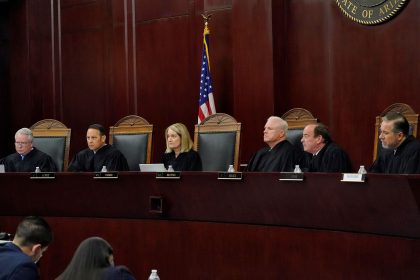Detroit Residents Ask Congress to Eliminate ‘Environmental Racism’

DETROIT — Residents of the Detroit area suggested Thursday during a congressional hearing that the Biden administration take care of “environmental racism” before celebrating its recent successes against climate change.
They are concerned about manufacturing and hazardous waste processing plants that emit pollution, particularly near neighborhoods with predominantly minority and immigrant populations.
The jobs and prosperity the plants bring “should not come at the expense of vulnerable communities,” said Rep. Ro Khanna, D-Calif., chairman of the House Oversight and Reform Subcommittee on Environment.
Khanna and witnesses at the field hearing in Detroit implied the corporations choose minority neighborhoods for their plants because environmental regulators are less likely to take enforcement action against them.
The corporate executives commonly live far away, sometimes in other countries, where they do not have to inhale the air pollutants associated with asthma and cardiovascular problems, they said.
“That’s not right, that’s not fair,” Khanna said.
His committee is trying to build on environmental incentives built into recent legislation, such as the Inflation Reduction Act that President Joe Biden signed into law this month.
The legislation appropriates $370 billion to move the U.S. towards infrastructure and industries that reduce greenhouse gas emissions. It also offers tax credits and other incentives for industries to reduce their harmful emissions.
Detroit-area residents wondered why it has taken so long for their voices to be heard while industries like Stellantis N.V., U.S. Ecology, U.S. Steel and the Detroit incinerator have been allowed to pollute the region’s air and water for years.
Stellantis is a multinational automotive manufacturing corporation formed in 2021 from the merger of Fiat Chrysler and the French PSA Group. It is headquartered in Amsterdam, Netherlands, but operates four assembly plants in Michigan, two of them in the Detroit area.
U.S. Ecology is a Baltimore, Maryland-based company that cleans and disposes of hazardous and non-hazardous materials for industry and government. It operates nine facilities in Michigan. U.S. Steel Corp. is a steel producer.
“Our community has been disregarded,” said Robert Shobe, a Detroit resident who reports respiratory problems from the nearby Stellantis plant. “Everything is based off of finance instead of people.”
He added, “I don’t go outside as much these days” to avoid the odor of paint as well as coughing and chest pain. “This plant is making us sick.”
The Subcommittee on Environment called areas where Americans feel their health is sacrificed for the profits of corporate polluters “sacrifice zones.”
The Environmental Protection Agency is supposed to control high-pollution industries through the permitting process it administers under the Clean Air and Clean Water Acts.
The EPA might succeed in limiting emissions of specific toxins but fails to recognize the harm from “cumulative impacts” of long-term exposure or a mix of pollutants, according to a statement from the subcommittee.
Legislation pending in Congress proposes mandatory consideration by the EPA of cumulative impacts as a condition of all the agency’s industrial permits.
“In addition, when those permits are violated, enforcement can be slow and lack transparency and public input,” the subcommittee statement said. “Legislators must strengthen the tools available to regulators in order to more meaningfully hold polluters accountable to their permits and better deter future violations.”
Environmental experts at the hearing said the Detroit area serves as a good example of the injustices created by neglecting air and water pollution enforcement.
Nicholas Leonard, executive director of the Great Lakes Environmental Law Center, cited a 2007 environmental study that showed residents near a large automotive plant reported some of Michigan’s highest asthma rates.
“Our government agencies haven’t taken the steps to protect residents,” Leonard said.
Stuart Batterman, a professor of Environmental Health Sciences at the University of Michigan School of Public Health, said as many as 189 pollutants have been detected coming from the state’s industrial plants.
“We have standards for only six pollutants,” he said.
Rep. Rashida Tlaib, D-Mich., the subcommittee’s vice chair, ran down a list of environmental citations against companies in the Detroit area that remain largely unresolved.
“I could do this all day and continue to tell you all this,” she said.
Tom can be reached at [email protected] and @TomRamstack
























